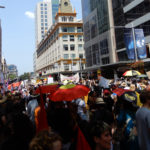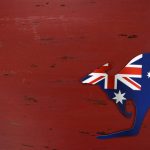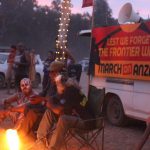Mobilising Against the Invasion: An Interview With FISTT’s Tameeka Tighe
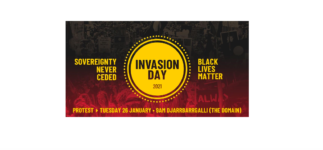
The 26 January this year marks 233 years since the first lot of British boat arrivals entered the waters of this continent and began to unleash a colonial project that involved the dispossession of First Nations people from their lands using extreme force.
Some would say that a united and mature nation that had moved past its colonial prejudices and privileges – perhaps, a nation that was “one and free” – might consider it wrong to celebrate the attempted destruction of and genocide upon the oldest continuous living culture on the planet.
It would seem, however, that others don’t mind overlooking the grand theft of the continent that currently goes by the name of Australia.
Indeed, acknowledging the massive land and resource grab that occurred here is kind of inconvenient when there’s an opportunity to throw another snag on the barbie.
The marking of Invasion Day, though, displays ongoing resistance against a colonial oppressor. And over the last decade, nationwide Invasion Day rallies have gone from strength to strength, with this year’s expected to be bolstered even further by recent Black Lives Matter turnouts.
The ongoing colonial project
The Minneapolis police killing of African American man George Floyd last May sparked nationwide Black Lives Matter protests in the US. And similar aspects to the 2015 prison guard killing of Dunghutti man David Dungay Jnr in Long Bay Goal was a focus when the protests caught on here.
In early June, tens of thousands marched through the streets of Warrang-Sydney demonstrating against police brutality towards First Nations peoples and calling for an end to Aboriginal deaths in custody.
Currently, the First Nations custody death toll stands at over 440 since 1991.
And recent government imprisonment statistics also reveal that the colonial project is no thing of the past. Aboriginal and Torres Strait Islander people make up 29 percent of the adult prisoner population, while only accounting for 3 percent of the overall populace.
The seizure and desecration of First Nations lands, along with the acquisition of its resources, continues as evidenced last year by the push for the Narrabri Gas project on Gomeroi Country and the felling of sacred trees to make way for highway construction on Djab Wurrung Country.
Sovereign peoples
This year the Warrang-Sydney Invasion Day protest is set to take place at Djarrbarrgalli-the Domain on the land of the Gadigal Nation, which “will be a significant reclamation of a special place where First Nations have gathered since time immemorial”.
FISTT (Fighting in Solidarity Towards Treaties) is co-hosting the event. Gomeroi, Dunghutti, Biripi woman Tameeka Tighe is a representative of FISTT, and of late, she’s also been vocal as part of the Gamil Means No campaign, calling for an end to the coal seam gas project slated for the Pilliga.
Sydney Criminal Lawyers spoke to Tameeka Tighe about the reasons for mobilising on Invasion Day, the fact that the event will be held in a COVID safe manner, and what sort of changes would indicate progress for First Nations peoples.
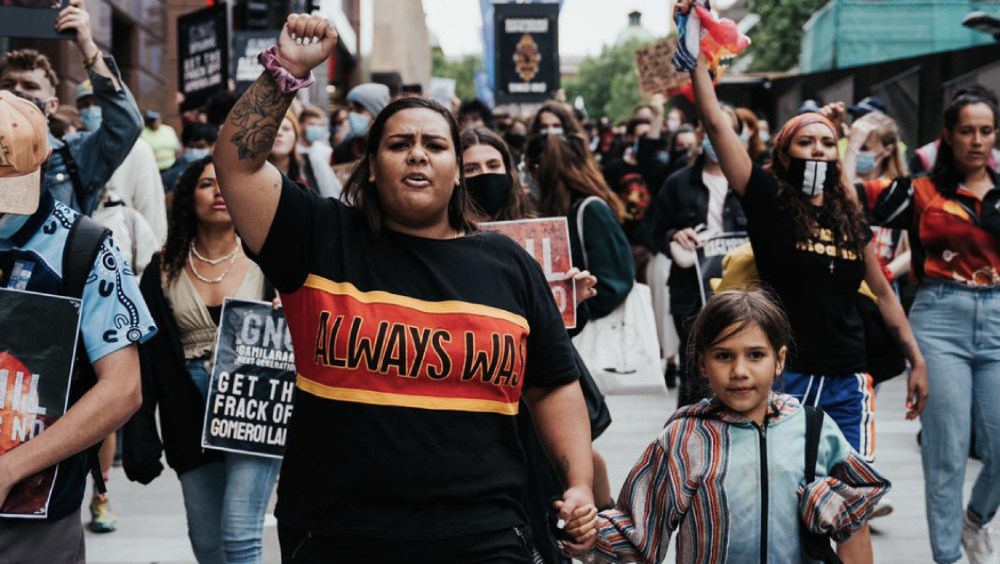
Tameeka, over recent years, each Invasion Day protest has been gaining in support. Are organisers expecting that the momentum of last year’s BLM rallies will lead to an even bigger showing at the end of this month?
We hope to continue the momentum of the BLM rallies. And we want to get the message out that with the recent COVID restrictions the rally will still be going ahead.
We urge people to come, participate and express their views in regard to Invasion Day.
We urge our supports from the Black Lives Matter movement to keep the same energy across the Invasion Day protests around the country.
What’s the message the Invasion Day protest seeks to convey?
Firstly, the sovereignty of our lands has never been ceded. We want to exist as First Nations people peacefully in our Country in the way that we wish.
The overpolicing of our people, the deaths in custody of our people and the removal of our kids massively affects our existence as sovereign people in our Country.
The impact of the British arrival 233 years ago – with its imperialism – has stopped our ability to exist peacefully as sovereign people in our homelands.
Last week, FISTT put out a message about the extra restrictions the NSW government has placed on public protests in light of cases of COVID-19 in the community.
What is FISTT’s position on the pandemic restrictions in relation to the rally going ahead?
We firstly want to acknowledge that since the pandemic has been declared, Aboriginal communities have put restrictions in place to protect our elders and our families.
It has been something that we’ve managed quite positively. As statistics will tell you, not many Aboriginal people have actually contracted the disease.
So, we want to ensure that we are acting in a COVID safe manner. We are aware of the health implications.
We will be ensuring that we keep our community safe, however we have a right to peacefully protest, which is an important part of our democracy. The issue of not being able to express our views in the midst of the pandemic is an issue in itself.
People would argue that racism, discrimination, and unconscious bias are a pandemic. Those issues being the cause of many deaths of Aboriginal people across our Country since invasion.
Looking at it on a wider scale, internationally, these issues have been the cause of death for other First Nations people with the British Empire’s invasion of other countries since the sixteenth century.
We look at COVID-19 as being an issue of the moment. We need to look at the bigger picture with white supremacy and the invasion, and why celebrating this day – 26 January – is still an issue.
The Invasion Day 2021 Facebook event page states, “The destruction of First Nations lands for capitalist profit is escalating despite a global climate emergency that threatens the very basis of life on this planet.”
Can you elaborate on this statement?
As Aboriginal people, our existence is solely based on the relationship we have with our nonhuman kin: with our Country, our animals, our water.
The negative impact of the government in terms of the climate issues that we face – such as coal, coal seam gas and continual mining – is a threat to the global climate emergency, not just an issue for First Nations people.
It is important to remind our government of their obligations to the United Nations Paris Agreement on climate change and the commitment that they have to reduce emissions, and what their contributions have not been to ensure that the obligations are met.
As I said, this is not just an issue for First Nations people, it is a global crisis.
While the destruction of our land is a form of ecocide, relaying the connection that we have as Aboriginal people to our Country, the destruction of our Country is the destruction of our people, which is genocide.
And lastly, Tameeka, as we’ve discussed, the colonial project is alive and well in so-called Australia.
But from the perspective of a First Nations person, are gains being made? And in your opinion, what do future gains have to look like?
At the moment, as a Gomeroi, Dunghutti, Biripi woman, the destruction of my homeland doesn’t feel like a gain at all.
Future gains to me look like a treaty where Aboriginal and Torres Strait Islander people are at the forefront of decisions that are made about our Country, our people and our kin.
That means always being at the forefront, not just having a seat at the table. It means being the ones hosting the discussion.


